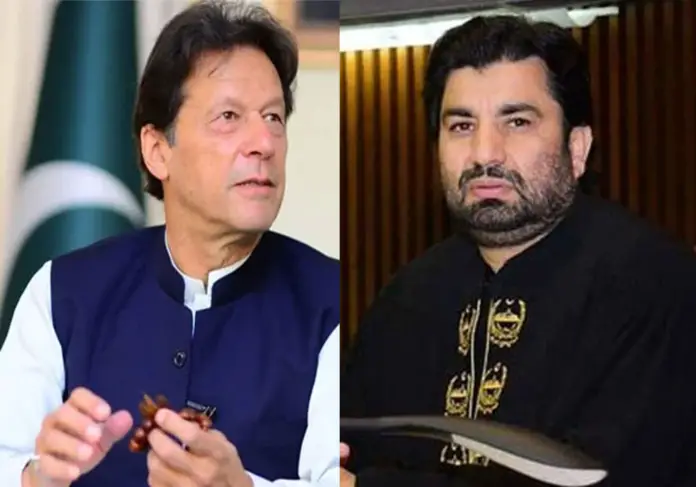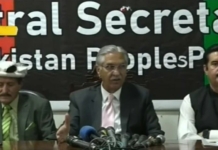Legal experts have given a mixed reaction over the actions of National Assembly Deputy Speaker Qasim Suri and decision of Prime Minister Imran Khan regarding dissolution of assemblies as some say that the speaker has constitutional right and his ruling cannot be challenged before any court of law, while others believe that there is no space in the constitution for such actions.
Some lawyers say that Prime Minister Imran Khan’s decision to request the president to dissolve of assemblies is correct as it came subsequent to the deputy speaker declaring the no-confidence motion unlawful and unconstitutional. Others are of the view that the speaker does not have such powers under the constitution, nor the prime minister.
Earlier in the day, Deputy Speaker Qasim Suri quickly disallowed voting on the no-trust motion and adjourned the session indefinitely. Later, the prime minister announced that he had advised the president to dissolve the national assembly and hold fresh polls.
“When no-trust motion against the prime minister was declared unlawful by the deputy speaker, then it could not be said that the decision of Prime Minister Imran Khan was unconstitutional,” says Advocate Aftab Bajwa, the former secretary of the Supreme Court Bar Association (SCBA).
Bajwa believes that there is sufficient evidence that ‘foreign hand’ was involved in the move against the Pakistan Tehreek-e-Insaf (PTI)-led government.
“The pictures and videos of the foreign diplomats are on the record and the agencies have been investigating these for last many days,” Bajwa says, urging the Supreme Court of Pakistan to take suo motu notice of the situation.
Bajwa further says, “All these pictures and photos of these foreign diplomats, their meetings and also the evidence about foreign funding for regime change were shown during the National Security Meeting.”
Bajwa states, “Imran Khan wanted to show all that evidence in his public gathering on March 27 but he did not do so due to the establishment’s intervention. But everything was on record. Therefore, I believe that this motion backed by the foreign hands was unlawful.”
However, Bajwa suggests that the top court should take notice and constitute a high-level commission to investigate the matter and the allegations regarding the foreign involvement. He has warned the councils and the bar associations to be cautious over the situation and not to involve lawyers into politics.
Abid Hassan Manto, another eminent lawyer, believes that actions of both the deputy speaker and the prime minister are totally unconstitutional. He says that the prime minister does not have any right to take any administrative action after a no-trust-motion against him is filed.
“The speaker has no right in the constitution to dismiss the motion without hearing the members,” says Manto, ruling out all legal options for Imran Khan to dissolve the assemblies.
Sardar Akbar Dogar, the president of the Lahore High Court Bar Association, says the assemblies cannot be dissolved by the prime minister when a no-trust-motion against him is filed.
“This act has no legal or constitutional value. And we don’t support it,” says the LHCBA President.
Hamid Khan, former PTI leader and prominent lawyer, is of the view that the act of the deputy speaker and decision of Prime Minister Imran Khan is against the constitution.
“The action of both the speaker and the prime minister is constitutionally wrong,” says Hamid Khan.
Ahsan Bhoon, the incumbent president of Supreme Court Bar Association, under whose leadership a petition was moved to the Supreme Court regarding the no-trust motion, was contacted by Minute Mirror repeatedly for his comment on the current political situation, but no response was received.
Advocate Khurram Chughtai says, “All actions, decisions, even any ruling of the speaker have to be made on the basis of the Rules of Procedure, with due application of the constitution and circumstances and issues placed before the speaker, as the case may be.”
Chughtai also says, “Such a decision or ruling is justiciable before courts of competent jurisdiction; in present case it can be challenged before the Supreme court.”







